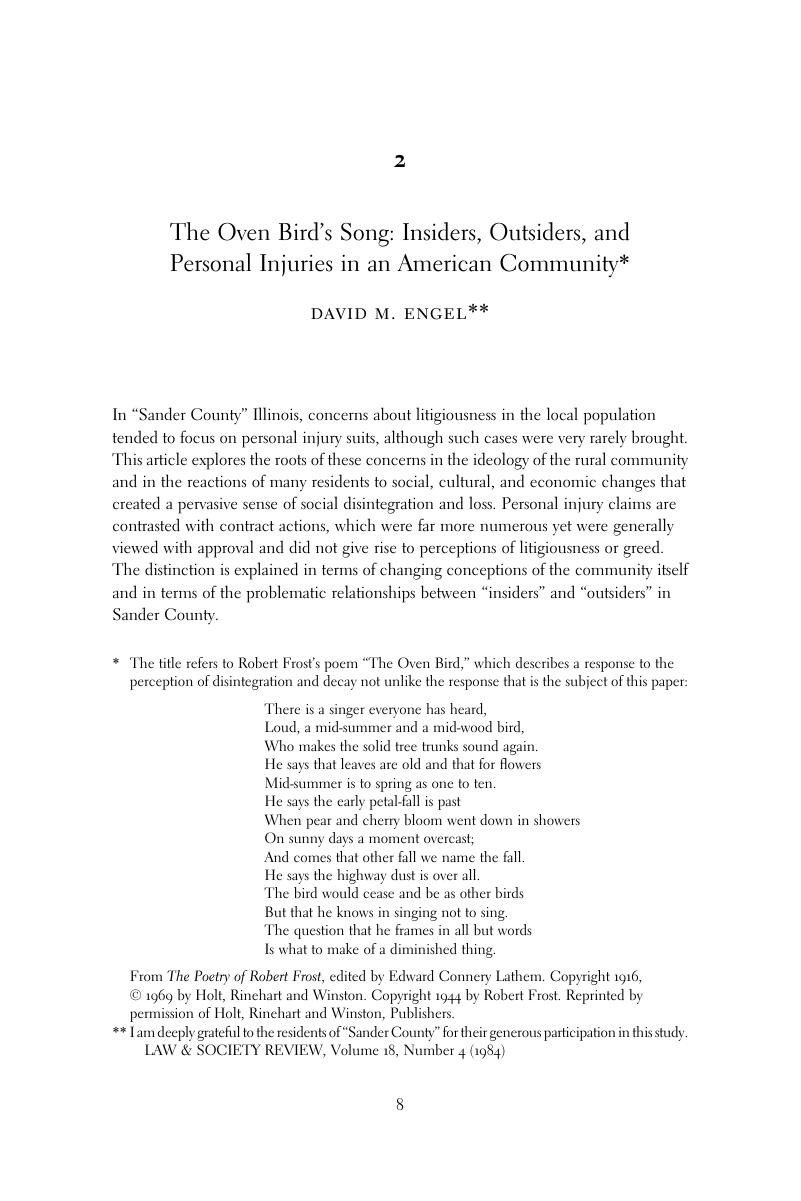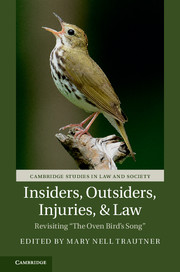Book contents
- Insiders, Outsiders, Injuries, & Law
- Cambridge Studies in Law and Society
- Insiders, Outsiders, Injuries, & Law
- Copyright page
- Contents
- Notes on the Contributors
- Acknowledgments
- Part I Introduction and Contextualization
- 1 Insiders, Outsiders, Injuries, and Law
- 2 The Oven Bird’s Song: Insiders, Outsiders, and Personal Injuries in an American Community*
- 3 Emulating Sherlock Holmes: The Dog That Didn’t Bark, the Victim Who Didn’t Sue, and Other Contradictions of the “Hyper-Litigious” Society
- 4 Karl’s Law School, or The Oven Bird in Buffalo
- Part II The Oven Bird’s Insights into the Legal System and Legal Process
- Part III Insiders, Outsiders, Class Conflict, and Difference
- Part IV Conflict and Law in Other Cultures
- Part V Afterword
- Index
- Books in the Series
- References
2 - The Oven Bird’s Song: Insiders, Outsiders, and Personal Injuries in an American Community*
from Part I - Introduction and Contextualization
Published online by Cambridge University Press: 21 December 2017
- Insiders, Outsiders, Injuries, & Law
- Cambridge Studies in Law and Society
- Insiders, Outsiders, Injuries, & Law
- Copyright page
- Contents
- Notes on the Contributors
- Acknowledgments
- Part I Introduction and Contextualization
- 1 Insiders, Outsiders, Injuries, and Law
- 2 The Oven Bird’s Song: Insiders, Outsiders, and Personal Injuries in an American Community*
- 3 Emulating Sherlock Holmes: The Dog That Didn’t Bark, the Victim Who Didn’t Sue, and Other Contradictions of the “Hyper-Litigious” Society
- 4 Karl’s Law School, or The Oven Bird in Buffalo
- Part II The Oven Bird’s Insights into the Legal System and Legal Process
- Part III Insiders, Outsiders, Class Conflict, and Difference
- Part IV Conflict and Law in Other Cultures
- Part V Afterword
- Index
- Books in the Series
- References
Summary

- Type
- Chapter
- Information
- Insiders, Outsiders, Injuries, and LawRevisiting 'The Oven Bird's Song', pp. 8 - 37Publisher: Cambridge University PressPrint publication year: 2018



